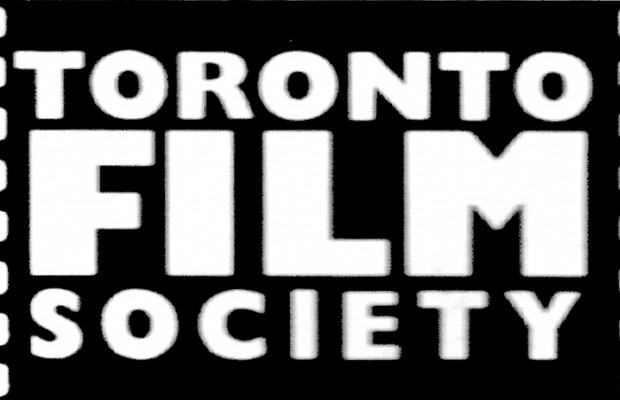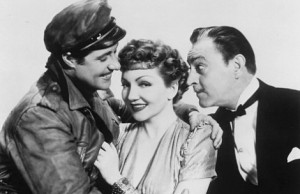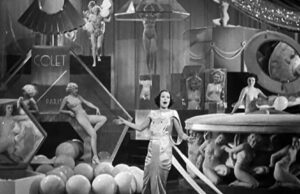Newsletter Winter 1984-85
By Toronto Film Society on May 8, 2014
FESTIVALS OF FESTIVALS: 1984
THE 9TH ANNUAL INTERNATIONAL FILM FESTIVAL
The 9th Annual Festival of Festivals took place in Toronto this year from September 6 to 16. There were various series encompassing the international cinema: Gala Presentations; Contemporary World Cinema; Stranger Than Fiction; World Documentaries; Two Way Streets; Perspective Canada; Canada’s Ten Best; Front & Centre; Eyes Write; Border Crossings; Experiments: The Photographic Image; Buried Treasures; Late Nights, Great Nights. The last eight series were for the most part associated with Canadian films. There was also the 1984 Trade Forum.
Various Toronto theatres were used for first run and repeat screenings: University Theatre, Bloor Cinema, Towne Cinema, Showcase Cinema, Backstage Theatres 1 & 2.
The following article will make mention of the films I saw. I will conclude with a list of the best and worst films I saw.
Stranger Than Paradise. U.S.A. 1984. A respectable first feature by director Jim Jarmusch, but not enough to hold the interest for 95 minutes.
White Madness. (De Witte Waan). Netherlands 1984. Lavish sets and art direction. Cold overview by director Adriaan Ditvoorst.
The Courage of Others. (Le Courage Des Autres). Upper Volta 1982. Director Christian Richard uses folklore and local traditions in depicting how the black man enslaves his own race. Too bad there were not more blacks in the audience to see the other side of the story.
Naughty Boys. Netherlands 1983. Avoid at all costs. Director Eric de Kuyper.
Old Enough. U.S.A. 1984. Producer Dina Silver and director Marsia Silver show high quality for an independent production. The Silver sisters introduced the film.
Boy Meets Girl. France 1984. Director leos Carax and film are both pretentious. Three people in the audience applauded at the end out of sympathy since Carax was present.
Blood Simple. U.S.A. 1984. A mixture of Hitchcock’s Rear Window, Dial M For Murder, Vertigo and Psycho, but done with style by director Joel Coen. Character actor M. Emmett Walsh plays, what I think is a sympathetic thug. When he gets his hand caught on the window sill, you don’t know whether to laugh or cry. The film will do nothing for the tourist trade in Texas. Look for the brief camera movement along the top of the bar. Film brought the house down.
Burroughs. U.S.A. 1983. As a documentary it was too long and at times too personal. Director/Producer Howard Brookner.
Memed My Hawk. Great Britain 1983. Director and star Peter Ustinov goes through his usual mannerisms in a film that goes off in too many directions.
The Three Crowns of the Sailor. (Les Trois Couronnes Du Matolot). France 1983. One loses interest after its many story flashbacks. Director Paul Ruiz.
Secret Places. Great Britain 1984. Director Zelda Barron has been working in the film industry for years and she has brought this wealth of experience to fruition in this, her first feature. For a refreshing change, strong women’s parts with none of this feminist nonsense. Barron introduced the film.
Metropolis. Germany 1926. Fritz Lang’s visuals speak for themselves. I could have done without Giorgio Moroder’s added vocal and instrumental musical adaptations. Moroder made a sales pitch for record and tape spinoffs.
Acting Out. Canada 1984. Director Al Sens animated short is cute. So what.
The Brother From Another Planet. U.S.A. 1984. Independent American film director John Sayles is a talent to follow. This fourth feature (preceded by Return of the Secaucus Seven, Lianna, Baby, It’s You) puts to shame the current coverblown Hollywood directors. Far superior to the overrated E.T. Sci-fi without special effects. Only John Sayles could say “Just the facts, ma’am” with a straight face.
A Season in Hakkari. (Hakkari De Bir Mevsim). Turkey/West Germany 1983. A surprise film for me. Slow. Methodical. Landscape photography. Director Erden Kiral’s style resembles that of Yilmaz Guney, but without the political bitterness.
Gospel According to Al Green. U.S.A./Great Britain 1984. Doesn’t come close to Say Amen, Somebody. Director/Producer Bob Mugge introduced the film.
Funny Dirty Little War. (No Habra Mas Penas Ni Olvido). Argentina 1983. Slapstick comedy to ridicule a political situation. Director hector Olivera.
The Voyage. (Le Voyage). France 1984. Director Michel Andrieu could have used his budget wisely (i.e.: to obtain a script) by having the Egyptian government official come to France as opposed to having the last half shot on location in Egypt. A degrading film to women.
War Lab. West Germany 1984. Short Documentary. Communist propaganda. Director/Producer Monica Maurer mentions Texas Instruments but doesn’t state a Soviet counterpart.
The Secret Agent. U.S.A. 1984. Director/Producer Jacki Ochs presents both sides of the argument about “agent orange”. The names of Francis Ford Coppola and Martin Sheen are among the many associated with this project.
Dog-Race. (Hunderennen). Switzerland 1984. Ex-Czech director/producer Bernard Safarik poses the dilemma: “Over there we can’t say anything, but people want to listen. Here, we can say anything, but no one wants to listen.” Safarik introduced the film.
The Ruins. (Khandhar). India 1983. Director Mrinal Sen at his best. Cinematic control. German director Reinhard Hauff introduced the film. His documentary film Ten Days in Calcutta: A portrait of Mrinal Sen was shown during the festival.
Constance. New Zealand 1984. Director Bruce Morrison spent all the money on sets and period costumes with nothing left over for the script. Cinematic waste.
The Trouble With Love. (Der Begin Aller Schrecken Ist Liebe). West Germany 1984. The trouble with feminist filmmaking. All female crew including “best girls”. Director Helke Sander.
The Story. Canada 1984. Short. Beautiful images that mean nothing. This by directors Lorne Wolk and David Willetts.
Full Moon in Paris. (Les Nuits De La Pleine Lune). France 1984. This is the fourth of director Eric Rohmer’s “Comedies et Proverbs” and the master is in good form. Aspiring French filmmakers, please study and try to learn from the best.
The Goodbye People. U.S.A. 1984. An American obscenity. What is Judd Hirsch doing in this film? Director Herb Gardner. Hirsch introduced the film.
The Gold Diggers. Great Britain 1983. A British obscenity. Just think of Marguerite Duras and Chantal Akerman co-directing a film together. What is Julie Christie doing in this film? Director Sally Potter.
Diary For My Children. (Naplo Gyermekeimnek). Hungary 1984. Crisp B&W photography the wa it should be used. Flashbacks handled with care. Subtle political jabs. Would be women filmmakers take note and learn from director Marta Meszaros.
The Illusionist. (De Illusionist). Netherlands 1983. Director/Producer Jos Stelling runs out of ideas in this social satire.
Patu! New Zealand 1983. Apartheid means racial segregation. South Africa exemplifies this term and thus finds it increasingly difficult to participate among world events. For some people the game of rugby takes precedence over King and Country. Maori film director/producer Merata Mita has pieced together a devastating documentary about the 1981 South African rugby tour of new Zealand. Shots of barbed wire around the playing stadium and protest signs of “Shame” set the tone.
Los Zancos. Spain 1984. Director Carlos Saura has done better work in the past. Commendable approach to the subject of the younger woman (Laura del Sol) and the older man (Fernando Fernan Gomez) relationship.
Improper Conduct. (Mauvaise Conduite). France 1984. In Cuba, Fidel Castro loathes homosexuals. It is not “macho” for one man to show affection and love for another man. Cuban exiles talk of their experiences and why they left Cuba in a head on interview documentary. Though there is repetition in themessage, I found the 115 minutes went by quickly. Co-directors Nestor Almendros and Orlando Jimenez Leal. Almendros was present for the screening and warned the audience: “Don’t expect Days of Heaven photography.”
Voro Nova. Netherlands 1984. Co-directors Dick Rijneke and Mildren van Leeuwaarden. Nothingness.
I Think of You Often. Canada 1984. Short. WWI war clips with narration over a man sending a letter to his loved one. Director Scott Barrie.
The Holy Innocents. (Los Santos Inocentes). Spain 1984. Mario Camus directs this haunting f ilm about peasants and landowners. Character development is the key.
The Hit. Great Britain 1984. This is the first surrealistic gangster film I have seen. That famous lyric: “We’ll meet again, don’t know where, don’t know when. But I know we’ll meet again, sosme sunny day.” Terrence Stamp brings back shades of Toby Dammit and Billy Budd as the philosopher child. Best work John Hurt has ever done. Director Stephen Frears.
Room 666. France/West Germany 1982. During the 1982 Cannes Film Festival, director Wim Wenders invited numerous filmmakers to speak about the state of contemporary cinema. Alone in a room, each individual spoke to the camera and a recorder. A reflection on some of the directors. Jean Luc Godard mumbled something about video. Rainer Werner Fassbinder just mumbled. Steven Spielberg spoke realistically about inflationary big budget productions and how they relate to the Hollywood system. Michelangelo Antonioni gave an impassioned discourse about adapting to the new technologies. Worth watching just for the comments.
The Leather Boys. Great Britain 1963. Director Sidney Furie’s film has dated somewhat but manages a realistic ending. Actress Rita Tushingham introduced the film.
Wildrose. U.S.A. 1984. Another good independent American film by director John Hanson (Northern Lights). But, the up-in-the-air ending bothered me. Hanson introduced the film.
Fraulein Berlin. West Germany 1983. What can be said about director/producer Lothar Lambert?
Paso Doble. West Germany 1983. Lothar using colour? Lothar using sound sync? This can’t be. Reminded me of a Russ Meyer film, moral message and all.
The Estonians: For the Record. Canada 1984. Short. A concise historical record leading up to the present. Retaining one’s cultural identity. Director Tina Soomet introduced the film.
Spadina. Canada 1984. We have seen it all before. The concentration camp scenes were unnecessary. Director/Producer David Troster introduced the film.
In Heaven There is no Beer? U.S.A. 1983. “That’s why we drink it here.” Les Blank spins a rousing film about Polka dancers and all the party festivities.
The Terence Davies Trilogy. Great Britain 1984. Director Terence Davies. More nothingness.
“I’m Almost Not Crazy…” John Cassavetes: The Man and His Work. U.S.A. 1984. Cassavetes is a very private individual. Why make a film about him? Director Michel Ventura.
Embers. (Glut). West Germany/Switzerland 1983. Actress Krystyna Janda as Europe’s modern conscience seeking answers to the past. Director Thomas Koerfer.
Choose Me. U.S.A. 1984. Actress Genevieve Bujold is given the opportunity to act and she takes full advantage of the situation. Compare this to the nonsense of Tightrope. Director Alan Rudolh. Actor Keith Carradine introduced the film.
Paris, Texas. West Germany/France 1984. Director Wim Wenders sets the mood with his opening credit sequence. At 150 minutes, the film is too long. Ry Cooder score devastating. Natassja Kinski gives her usual non performance. Harry Dean Stanton impresses in a lead role.
Sprout Wings and Fly. U.S.A. 1983. Co-directors Les Blank, Cece Conway and Alice Gerrard presented a high spirited short on Appalachian mountain fiddler Tommy Jarrell. Music from the heart for just plain folks.
The Company of Wolves. Great Britain 1984. If director Neil Jordan thinks that originality stems f rom copying films such as An American Werewolf in London, Wolfen and The Wild Child then he has just discovered a new meaning for the word motivation, In his opening remarks, producer Stephen Woolley had the audacity to mention the influences of Jean Cocteau and Michael Powell. For shame. This abomination of the “Little Red Riding Hood” theme was based on an original short story by British writer Angela Carter. What is Angela Lansbury doing in this film?
Before Stonewall. U.S.A. 1984. Director/Producer Greta Schiller’s documentary recalls incidents that led to the American gay movement. A rousing reception for this honest film.
Annie’s Coming Out. Australia 1984. Director Gil Brealey stated in his opening remarks that his intention was to make a commercially viable product. I accept that. For the sake of art, I think the documentary approach would have been more effective.
Secret Honor. U.S.A. 1984. Director/Producer Robert Altman obtains an exciting one man performance from Phillip Baker Hall and no one in past political life is spared. His depiction of Richard Nixon fumbling with tape and recorder soon turns to profane denouncements of Henry Kissinger. Far superior to Altman’s last few stage adaptations. Altman introduced the film.
Mixed Blood. U.S.A. 1984. A blasé attitude towards fear and death. The dull spots abound in this film by director Paul Morrissey.
Swann in Love. (Un Amour De Swann). France/West Germany 1984. The French press and public despise director Volker Schlondorff’s adaptation of the novel by Marcel Proust. I concur.
Love Streams. U.S.A. 1984. A comic version of A Woman Under the Influence. Director John Cassavetes misses the point by introducing too many subplots. Even the ballet dream sequence (splendidly shot) can’t save this overlong film.
The following is a list of films (in alphabetical order) that are worth a look:
Blood Simple
The Brother From Another Planet
Diary for my Children
Full Moon in Paris
The Hit
The Holy Innocents
Improper Conduct
In Heaven There is No Beer?
Old Enough
Patu!
Room 666
The Ruins
A Season in Hakkari
Secret Honor
Secret Places
Sprout Wings and Fly
Wildrose
The following is a list of films (in alphabetical order) that are not worth a look:
Boy Meets Girl
The Company of Wolves
Constance
Fraulein Berlin
The Gold Diggers
The Goodbye People
Naughty Boys
Swann in Love
The Terence Davies Trilogy
The Three Crowns of the Sailor
The Trouble with Love
Voro Nova
The Voyage
by Helmuts Drengers
You may also like...
-
News

Thank You from TFS!
Toronto Film Society | July 21, 2025Our matinée on Sunday, August 17th – at the blessedly air conditioned Paradise Theatre – will conclude the Toronto Film Society’s 77th season! But take heart, as we’ll be...
Programming

Sunday Afternoons at the Paradise
Toronto Film Society | September 28, 2025Join TFS for Season 78’s Sunday Matinée Series. Please save this date and visit us regularly for further updates on the films, added shorts, and to purchase tickets: Sunday,...
-
 Toronto Film Society | July 16, 2025
Toronto Film Society | July 16, 2025
-
 Toronto Film Society | November 6, 2022
Toronto Film Society | November 6, 2022
-
 Toronto Film Society | August 1, 2023
Toronto Film Society | August 1, 2023
Donate to Toronto Film Society – We’re now a Registered Charity!
Copyright © 2017 Toronto Film Society.



